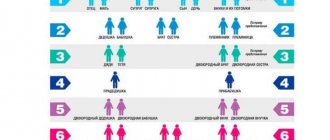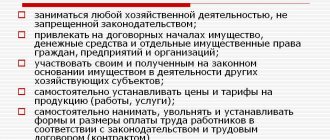Opening an inheritance
Heirs need to understand that the composition of the inheritance mass is determined precisely at the time of the death of the testator. Until that time, a person can own any property, use it, and make transactions not prohibited by law. For example, sell/donate an apartment.
If the transaction was completed on the eve of the death of a citizen, then the alienated property is no longer included in the list of inheritance. Therefore, it does not matter what assets a person has during his lifetime. The starting point is the death of the testator.
What to do if a person is declared dead by a court decision? This fact gives rise to similar legal consequences. The only difference is the date of death. It can be accurate or estimated (Article 1114 of the Civil Code of the Russian Federation). However, the countdown of time begins from the moment the procedural act enters into legal force.
Previously, heirs had to go to court twice:
- Initially, an application was submitted to declare the citizen dead.
- A repeated appeal was submitted to extend the period for registration of inheritance.
The changes made to the law eliminated legal imperfections. Citizens are given 6 months from the date the court decision enters into force.
Missing deadlines leads to loss of property rights.
Subjects of hereditary succession
Testator
The subjects of hereditary succession are the testator and heirs.
Testator – a person after whose death inheritance succession occurs. It is often noted in the literature that the testator does not become the subject of hereditary succession, since the legal relationship itself arises only after the death of the citizen. It is difficult to argue against this statement. At the same time, data related to the figure of the testator is important for determining the conditions for the emergence of inheritance legal relations.
The testators can be Russian and foreign citizens, as well as stateless persons living in the territory of our country. Legal entities cannot leave inheritance: upon their termination through reorganization, the property passes to other persons in the manner prescribed by law (Article 58 of the Civil Code), and upon their liquidation, universal succession does not arise (clause 1, Article 61 of the Civil Code).
In order to consider a specific person as a testator, it is necessary to confirm his death or in the cases specified in Art. 45 of the Civil Code, the entry into force of a court decision declaring him dead.
Heirs
Heirs are persons specified by law or will as legal successors of the testator.
Any subject of civil law can inherit: a citizen, legal entity, state or municipality. Citizens and the state can be heirs both by law and by will. Moreover, a citizen’s ability to inherit in no way depends on the scope of his legal capacity. Legal entities can act as heirs only if a will is drawn up in their favor.
The circle of persons who can be called upon to inherit is determined by law (Civil Code). First of all, these are citizens who are alive on the day of opening of the inheritance, as well as those conceived during the life of the testator and born alive after the opening of the inheritance (paragraph 1 of Article 1116 of the Civil Code). According to the tradition established in Roman law, they are sometimes called “nasciturus” (from the Latin nasciturus - “fetus in the mother’s womb”), or “postumi” (from the Latin postumi - late, additional).
The Civil Code defines very broadly the circle of those who can be called upon to inherit under a will. In particular, in addition to the named individuals, these are also legal entities existing on the day of opening of the inheritance. In addition, the Russian Federation, constituent entities of the Russian Federation, municipalities, foreign states and international organizations may be called upon to inherit by will. Escheated property is inherited by law by the Russian Federation, and residential premises are inherited by municipalities or the cities of Moscow and St. Petersburg as subjects of the Russian Federation (clause 2 of Article 1151 of the Civil Code as amended by Federal Law No. 281-FZ of November 29, 2007).
Unworthy heirs
In an effort to best protect participants in inheritance relations, the legislator included in the Civil Code norms that prevent unworthy persons from inheriting.
Firstly, citizens who, by their deliberate unlawful actions directed against the testator, any of his heirs or against the implementation of the last will of the testator, expressed in the will, contributed or tried to promote the vocation of themselves or other persons to inherit or increase the share of the inheritance due to them or other persons. These circumstances must be confirmed in court (paragraph 1, paragraph 1, article 1117 of the Civil Code). At the same time, it should be borne in mind that citizens to whom the testator, after they lost the right to inherit, bequeathed property (i.e., essentially forgave them), have the right to inherit it.
Secondly, parents do not inherit by law after children in respect of whom they were deprived of parental rights and were not restored to them by the day the inheritance was opened (paragraph 2, paragraph 1, article 1117 of the Civil Code).
And finally, thirdly, at the request of an interested person, the court excludes from inheritance according to the law citizens who maliciously evaded the fulfillment of their obligations by law to support the testator (clause 2 of Article 1117 of the Civil Code).
If such an unworthy heir somehow nevertheless received certain property from the inheritance, he must return it as unjustly received in accordance with the rules of Chapter. 60 GK.
Place of opening of inheritance
The procedure for determining the place of opening of inheritance
| No. | Reasons | Place of opening of inheritance |
| 1 | If there is information about the permanent registration of the deceased | The application is submitted at the place of permanent registration |
| 2 | In the absence of registration data, if the inheritance includes real estate | By property location |
| 3 | In the absence of real estate, but in the presence of other property | Where the most valuable movable property is stored. The value is determined based on the evaluation results. |
| 4 | If a notary refuses to open an inheritance case | The place where the inheritance is opened is determined by a court decision. The application is submitted by the heir. |
Features of inheriting a share in a consumer cooperative
Article 123.2 of the Civil Code of the Russian Federation defines a consumer cooperative as a voluntary association of individuals or legal entities formed to meet their needs by combining property (share contributions).
According to the rules of Article 1177 of the Civil Code of the Russian Federation, the heir of the owner of a share in a cooperative cannot be denied membership. If there are several heirs, then all issues regarding the division of the share are also regulated by federal laws and the constituent documents of the particular cooperative.
In some cases, it is impossible to divide a share due to direct instructions in the constituent documents or based on the actual situation.
For example , a plot in a gardening partnership often cannot be divided among the heirs, since the resulting piece of land will have an area below the minimum level established by law. Accordingly, the person who takes over such property pays compensation for the cost to all other heirs.
The ban on dividing shares in a consumer cooperative, which is specifically stated in the constituent documentation, is a frequent occurrence. Even when creating an organization, the parties are not inclined to increase the number of shareholders and thereby complicate the management process.
When registering an inheritance for a share in a consumer cooperative, the notary, in addition to all other documents, should submit a certificate from the cooperative about the size and nominal value of the share, as well as information about its estimated value. The certificate can be obtained either by a notarial request or by a personal application from the heir.
What is included in the hereditary mass
The inheritance includes movable/immovable property, corporate rights, and property complexes. As well as the exclusive rights of the deceased subject.
List of assets:
- Apartment.
- A private house.
- Plot of land, share.
- Industrial equipment.
- Any kind of buildings and structures.
- Vehicle (car, motorcycle).
- Securities of a joint stock company.
- Cash deposit in a bank.
- Precious items.
- Harvest of any crop (wheat, sunflower).
- Finished products.
- Copyright.
- Houseware.
Expert opinion
Stanislav Evseev
Lawyer. Experience 12 years. Specialization: civil, family, inheritance law.
Is unregistered property included in the inheritance? Yes. One of these types of property is a non-privatized apartment. However, due to the lack of documents, the notary will not be able to issue a certificate to the heir. Ownership rights will have to be recognized through the courts. The basis for satisfying the claim is that the testator began the privatization procedure, but did not have time to complete the documents. Subsequent registration of property rights occurs by court decision.
Along with property rights, there are obligations of the testator. For example, if a person takes out a mortgage loan, then until it is fully repaid, the apartment/house is pledged. In the event of the death of an individual, his obligations pass to his heirs. Lenders have the right to present their claims within 3 years.
Beneficiaries can accept the property or waive their rights:
- The refusal is expressed in the inaction of the heir or in writing. The application is submitted to the notary who opened the inheritance case.
- Acceptance of property implies the simultaneous transfer of the borrower's obligations to the beneficiaries.
There are several ways to resolve the issue with the bank:
- Renewal of the loan agreement . As a result, the heir continues to pay the loan according to the schedule.
- Repayment of the balance of debt. If there are additional assets or available funds, the heir can close the loan and register ownership.
- Sale of mortgage housing. The proceeds must be used to pay off the debt. The remainder of the funds remains at the disposal of the heir.
What is property inheritance: explanations of basic concepts
First you need to understand what inheritance is. This is the transfer of property of a certain person (deceased) to other citizens. The inheritance is transferred to persons in the order of legal succession.
You can learn more about this from article number 1110 of the Civil Code of the Russian Federation. A person who died suddenly and bequeathed his own property to certain persons is called a testator in accordance with current legislation.
But the citizens to whom the property of the deceased passes by will or law are usually called heirs. The concept of inheritance law is spelled out in detail in one of the parts of the Civil Code. More precisely, in the third. This section was developed in the first half of 2002.
According to this document, such a right on the territory of our state is a branch of civil law. It contains the basic established norms that form legal relations during the transfer of the property of the deceased to the heirs.
Thanks to them, the subsequent procedure for obtaining the inheritance mass is built. They also establish the basic rights and obligations of candidates claiming a particular inheritance. The rules contain all the necessary information regarding the rules for registering property for various types of inheritance.
The right to inheritance in our country is divided into several basic institutions:
- certain grounds for obtaining an inheritance;
- recognition of a particular citizen claiming an inheritance as unworthy;
- purchase of property;
- discovery of a specific inheritance.
The right of inheritance implies the possibility of purchasing specific movable or immovable property legally and in the presence of a will of the deceased. If a person is not a direct heir under a will, then he has the opportunity to purchase property with his own money.
This procedure involves the distribution of property among the heirs according to the order. If there is a will, the property of the deceased is distributed according to its provisions. You can learn more about the process thanks to article number 1153 of the Civil Code on acceptance of inheritance.
To understand the main points of inheritance law, you need to familiarize yourself with its basic concepts:
- inheritance . This is a process that involves the transfer of the property of a deceased citizen to other persons legally. It is carried out thanks to a will or in accordance with the law;
- testator. This is the person after whose death property rights are transferred. The person leaving an inheritance to close relatives, acquaintances, friends may be a person with active legal capacity, a citizen with limited legal capacity or citizenship of another state;
- heir - a person who claims inheritance property on the basis of a specific law or will. Any person can become one, regardless of citizenship or legal capacity;
- inherited property . There are several types of inheritance: after the death of the testator, some citizens are transferred to his property or non-property rights, as well as debts. In other words, a person receives from a deceased relative not only real estate, but also debts that will have to be paid upon entering into an inheritance. The inheritance mass may include property that was received by a citizen only legally. If the house, apartment or car was not registered in the name of the deceased person, then the closest relatives will not be able to inherit them.
All of the above concepts of inheritance law are applied when preparing all documents.
According to the norms of current legislation, the heir can not only accept the inheritance, but also refuse it.
What is not included in the hereditary mass
The inheritance does not include personal rights/responsibilities:
- child support;
- compensation for damage caused to human life/health;
- personal non-property rights.
Important! The exception is the presence of arrears of alimony on the day of death of the testator. If proceedings were opened in the bailiff service, however, the testator did not make the necessary deductions. Obligations of this kind pass to the heirs within the value of their share. Beneficiaries will be required to repay the resulting debt.
The marital share of property is also not included in the inheritance. The notary is obliged to separate it from the general inheritance mass. The issuance of a certificate of ownership occurs upon the application of the husband/wife. The remainder of the inheritance is divided among the claimants.
If the spouse refuses to allocate his share of the property, then it is included in the inheritance. This practice is appropriate if the husband/wife is the sole heir of the deceased spouse.
When inheriting by law, the spouse is entitled to a certain part of the property. If there is a will, the husband/wife may be left without inheritance. An exception is the mandatory share (Article 1149 of the Civil Code of the Russian Federation).
The law establishes restrictions on the inheritance of land plots:
- Foreign citizens cannot own land plots within border territories (Article 15 of the Land Code of the Russian Federation).
- A similar requirement is established for agricultural land (Article 3 of the Federal Law of July 24, 2002 No. 101-FZ). Only lease of such lands is allowed. The right of ownership to an accepted inheritance is subject to termination within 1 year (Article 238 of the Civil Code of the Russian Federation).
Another restriction concerns weapons. Inheritance of such property occurs in accordance with the general procedure. However, the heir will have to obtain permission to store it. If the heir is denied the issuance of permits, then the ownership of the weapon is terminated. It is subject to sale by an authorized body. The proceeds are transferred to the legal successor (Article 1180 of the Civil Code of the Russian Federation). However, the costs of selling weapons are preliminarily withheld.
When inheriting an enterprise or a share in an LLC, the priority right to receive is given to a person registered as an individual entrepreneur or having a share in the enterprise. In case of receiving property
Concept and composition of inheritance
First of all, this concept refers to the property of the testator, after whose death it comes under the control of a notary.
The concept of inheritance composition has a synonym - hereditary mass.
This article is devoted to those issues that reveal the concept of the composition of an inheritance and what is included in it.
When inheriting, the property of the deceased (inheritance, hereditary property) passes to other persons in the order of universal succession, that is, unchanged as a single whole and at the same moment (Clause 1 of Article 1110 of the Civil Code of the Russian Federation).
Unidentified property
Sometimes the heirs manage to identify only part of the property. They contact a notary, receive a certificate, and register ownership. However, after a while, the beneficiaries discover additional property.
What to do in such a situation? Applicants will need to properly register property rights.
Options for registering newly identified property:
- The heir may file a claim to include the property in the estate. If the necessary documents are available, the heir must contact the notary again. After checking the legal fact and the provided papers, the notary will issue an additional certificate (Article 1162 of the Civil Code of the Russian Federation). However, if the identified property is not subject to exemption from payment of the fee, then the heir will have to make an assessment of the property and pay a state fee. Subsequent registration of property rights is carried out in accordance with the general procedure. The basis for registering property with the state is a new certificate of inheritance.
- The heir goes to court to recognize the ownership of the newly discovered property. In this case, a repeated application to the notary is not required. Subsequent registration of property rights occurs by court decision.
Features of inheriting a share in a joint stock company
The possibility of registering as an inheritance such specific property as shares of an enterprise in the Civil Code of the Russian Federation is defined only in Part 3 of Article 1176. In practice, situations are possible when, as a result of a long period of downtime in registration, this property is lost.
It is worth noting! The law does not prohibit the inclusion in the charters of companies of a provision that, in the absence of heirs, shares are redistributed among existing shareholders.
As a rule, the specific package of documents is determined by the notary himself. But it certainly includes:
- Extract from the register of shareholders of the company (original). You simply cannot receive such a document by application - you need to fill out a special request from a notary and then contact the company itself or the registry holder with this document.
- Estimation of the value of a share in the form of a certificate or expert opinion. This document is necessary, first of all, for the notary himself to determine the fee for issuing inheritance documents (certificates of title).
- Documents confirming relationship with the testator or marriage ties - birth or marriage certificate.
After receiving a certificate of inheritance from a notary, it should be provided to the holder of the register of the joint-stock company, who will re-register the shares in the name of the heir. The shares themselves can be either documentary in nature (a special document) or uncertificated (mentioned in the register).
It often happens that the heirs do not know about the presence of shares in the total estate of the deceased or cannot correctly determine the organization . The only thing that can be advised in this case is to study the documents left behind by the testator as carefully as possible.
As a rule, joint stock companies send annual reports to their participants, information on the results of activities, and the payment of dividends.
About inheritance objects
To better understand the essence of inherited property, you need to know what is included in it:
Dear readers!
Our articles talk about typical ways to resolve legal issues, but each case is unique. If you want to find out how to solve your specific problem, please contact the online consultant form on the right →
It's fast and free!
Or call us by phone (24/7):
If you want to find out how to solve your particular problem, call us by phone. It's fast and free!
+7 Moscow,
Moscow region
+7 Saint Petersburg,
Leningrad region
+7 Regions
(free call for all regions of Russia)
- Real estate (apartment, private house, room, land, garage, non-residential property);
- Movable property (vehicles, furniture, equipment, money, jewelry, bank deposits with dividends, etc.).
Before transferring the inheritance to future owners, it is valued in monetary terms. It is impossible to do without this procedure, since a state fee is provided, the amount of which must be calculated. Despite the fact that the state provides some tax benefits, not everyone can take advantage of them.
It is equally important to note that it is impossible to accept inherited objects selectively - a person either accepts everything, including responsibilities and debts, or renounces everything completely. Based on this, when entering into inheritance rights, you need to carefully evaluate such a decision, since sometimes you can end up not with an inheritance, but with bankruptcy.
Self-development and unauthorized occupied areas
The main rule for the transfer of property by inheritance to occur must be the legality of its acquisition by the testator. If the latter carried out self-development during his lifetime, the property he built is not inherited. A land plot seized without permission has no right to be inherited. There are those property rights and obligations that are directly related to the personality of the deceased. The Civil Code of the Russian Federation does not allow the right of their inheritance. This category of rights and obligations includes alimony payments. They are not inherited by alimony payers and alimony recipients. If a person used the property free of charge or leased it out on the same terms, such property and legal relations are not transferred to the heirs.
Non-inheritable rights
It is necessary to know not only about exceptions in the right of inheritance. Thus, in addition to what was listed earlier, the inheritance does not include pension accruals (except for those that the deceased did not manage to receive), lease and rental agreements for housing, obligations to member cooperatives, as well as vehicles that were issued to a disabled person out of necessity, but the right to use them family members can inherit.
Moreover, when the testator, during his lifetime, executed an insurance contract, indicating as the recipient of the monetary payment a stranger or a relative who is not one of the primary heirs, the rule of will applies. That is, the funds will actually be received by the specified person and no one else.
There are also some payments that are not included in the estate, but special conditions allow family members to receive them in equal shares (childbirth benefit, assigned during life and lost wages).
You cannot inherit municipal housing and other state real estate, even if the testator has used it all his life and has no other property. It will also not be possible to inherit real estate that was illegally built and not registered.








